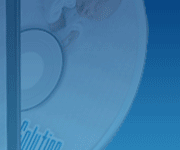Babies born prematurely are at increased risk for a host of health problems. But now research by Israeli scientists has uncovered a non-drug way to help preemies gain weight and grow stronger quickly. A new study by Dr. Dror Mandel and Dr. Ronit Lubetzky of the Tel Aviv Medical Center, which is affiliated with Tel Aviv University's Sackler School of Medicine, found premature infants exposed to thirty minutes of Mozart's music daily grew far more rapidly than premature babies not exposed to the classical music.
"It's not exactly clear how the music is affecting them, but it makes them calmer and less likely to be agitated," Dr. Mandel said in a statement to the media. "The repetitive melodies in Mozart's music may be affecting the organizational centers of the brain's cortex. Unlike Beethoven, Bach or Bartok, Mozart's music is composed with a melody that is highly repetitive. This might be the musical explanation. For the scientific one, more investigation is needed."
By measuring the physiological effects of music by Mozart played to pre-term newborns for 30 minutes, Dr. Mandel and Dr. Lubetzky and colleagues documented that when the babies were exposed to the music, they expended less energy -- a process that can lead to faster weight gain and growth. That's important because the sooner preemies attain an acceptable body weight, the sooner they can go home. The longer they have to stay in the hospital, the more they are exposed to possible infections. What's more, a healthy body weight is believed to strengthen their immune systems so the babies are more likely to avoid illness in the future.
The researchers pointed out that several other environmental effects, such as tactile stimulation (whether the baby is held and stroked adequately) and room lighting, are already known to affect the survival and benefit the health of fragile premature infants. The new study, however, is the first to directly study the effect of music on these newborns.
"Medical practitioners are aware that by changing the environment, we can create a whole new treatment paradigm for babies in neonatal care," Dr. Mandel stated. "The point of our research is to quantify these effects so that standards and care-guides can be developed. We still don't know the long-term effects of the music, or if other kinds of music will work just as well."
For more information:
http://www.aftau.org/site/News2?pag...
http://www.naturalnews.com/026668_t...





